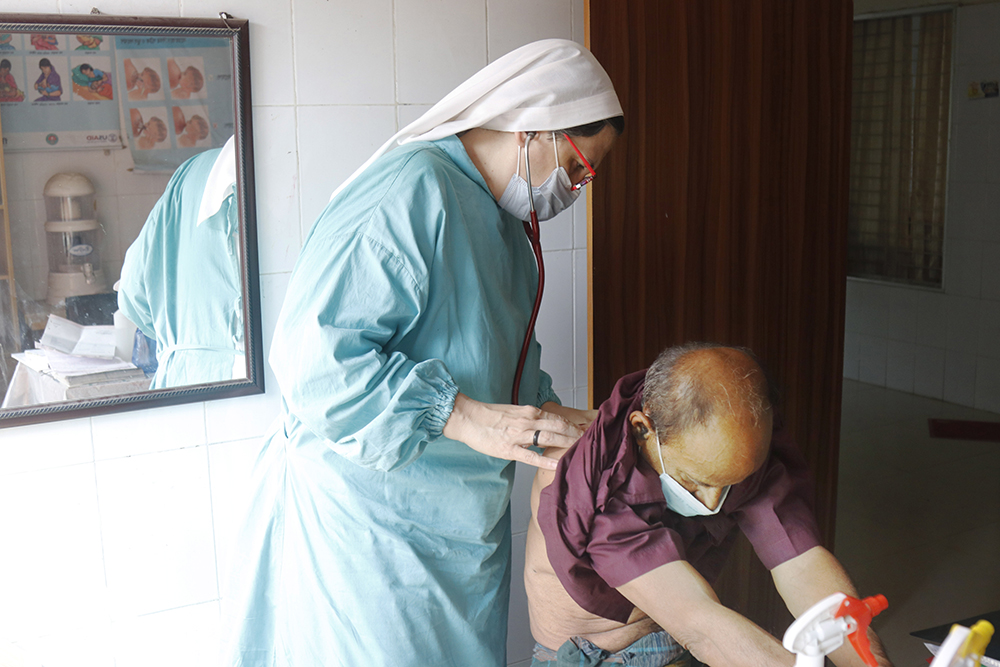
Sr. Roberta Pignone examines a patient in her chamber at Damien Hospital in Khulna, Bangladesh. (Uttom S. Rozario)
After earning her medical degree, Italian Sr. Roberta Pignone heard the call of God. Four years later, at the age of 31, she became a member of the Missionary Sisters of the Immaculate, known as the PIME sisters.
"Jesus saved me, so I will work for Jesus," Pignone said. "I want to be the oil for the sick, to be the oil to heal their wounds."
For about 12 years, Pignone has been working for the recovery of leprosy and tuberculosis patients as the director of Damien Hospital in the Khulna Diocese in the southern part of Bangladesh.
Pignone and Bangladesh were born in the same year, 1971. Pignone, the younger of two siblings, studied languages in school and wanted to serve people as Jesus had.
Pignone talked to Global Sisters Report about how she became a missionary, how she came to Bangladesh, her challenges here, and her future plans.
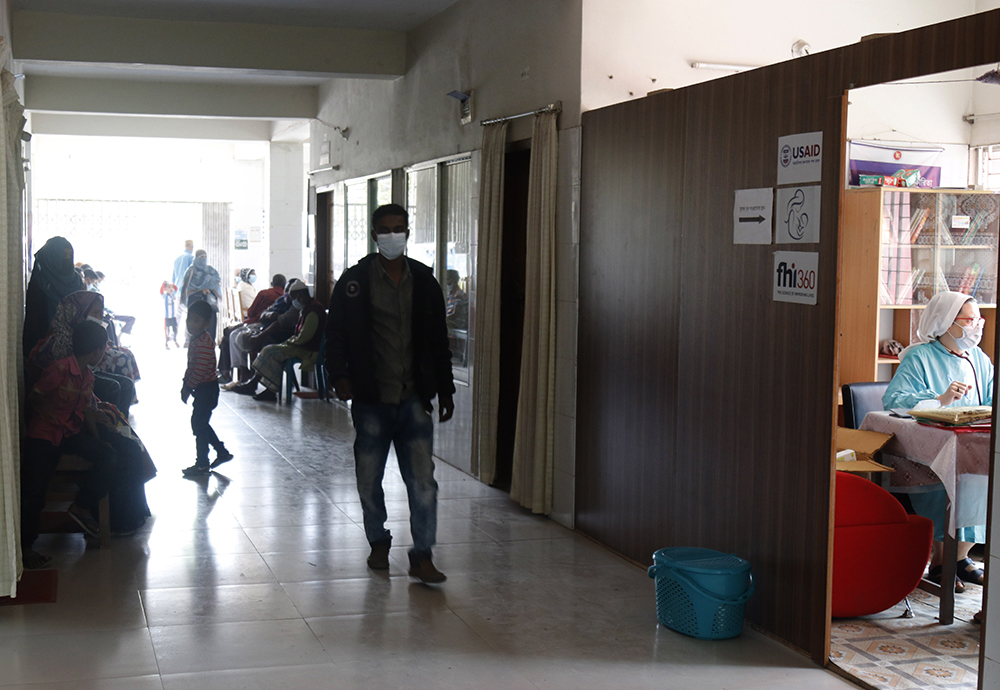
Patients wait outside Sr. Roberta Pignone's office at Damien Hospital in Khulna, Bangladesh. (Uttom S. Rozario)
GSR: How did you become a missionary?
Pignone: I never thought I would be a missionary, but I had a special desire to become a doctor and also a desire to journey with God. I wanted to be like Jesus, who washed his disciples' feet.
I wanted to be a doctor all my life. I studied and became a doctor, but I could not be completely happy. It seemed that there was more left. I discussed this with a priest and sought his advice on what to do, where to go, etc. He sent me on a one-month mission to Bangladesh in 2000 with the youth.
I still did not want to be a sister. I worked with an Italian nurse sister in a dispensary, but that was not enough for me, either. I went to the chapel to pray, and I developed a love for my current congregation, PIME.
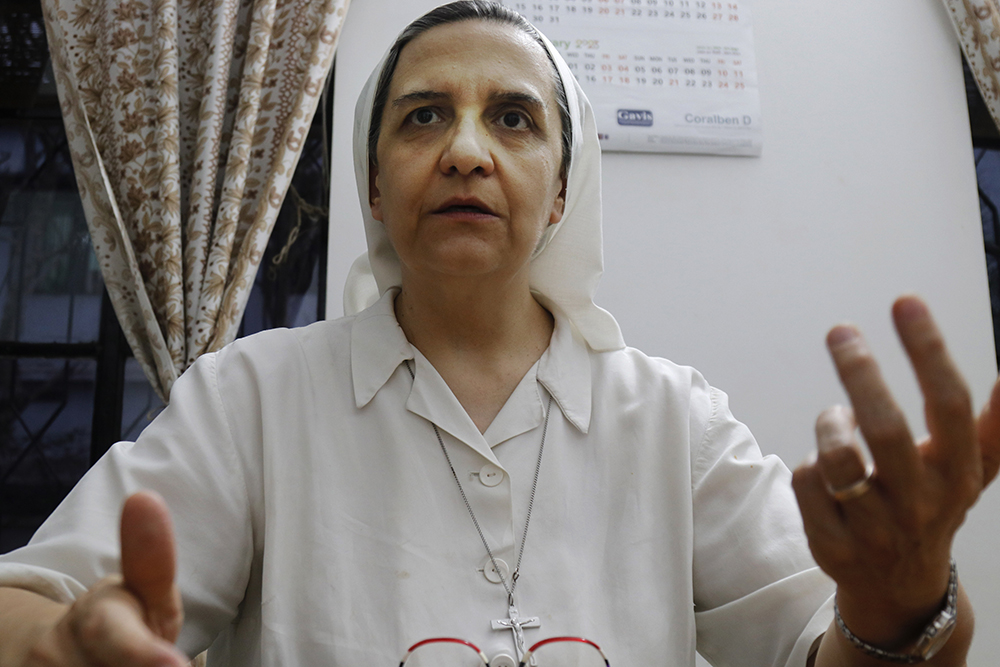
Sr. Roberta Pignone, an Italian member of the Missionary Sisters of the Immaculate (Uttom S. Rozario)
Was that enough for you to become a nun?
No. I went back to Italy. I had a doctor friend who died unexpectedly, so I decided to work in his honor. Then I did decide that I would serve people as a missionary. Finally, in 2002, I entered the PIME congregation. I took my first vow in 2006.
When and why did you come to serve in Bangladesh?
I was in Bangladesh for a month in 2001. Later, my congregation thought I would do well in Bangladesh, and they needed me here. So after taking my first vow in 2006, they sent me to Bangladesh in 2012.
Advertisement
Sisters usually preach, give religious education, and run schools in Bangladesh. But why are you working in a tuberculosis and leprosy hospital?
Service can be done in many ways, and one of the charisms in our community is to serve the sick and work where there is no preaching. When I came to Bangladesh, the doctor of this hospital went back to Italy, and the responsibility fell on me, though I wanted to work in a village dispensary. But a senior sister told me, "You don't understand that you are serving the poorest people. If you are not here, then who will serve here?" So I stayed here and continued the service for the poor people.
Are you happy working here now?
Of course I am happy here now. When I have to leave here, I feel like I will die. Our sisters change after three or four years, but I've been here for 12 years, so this is my life. But sometimes I feel like I'll die if you move me away. At one time, I felt that this was not my place, but now it seems that no one can move me from here.
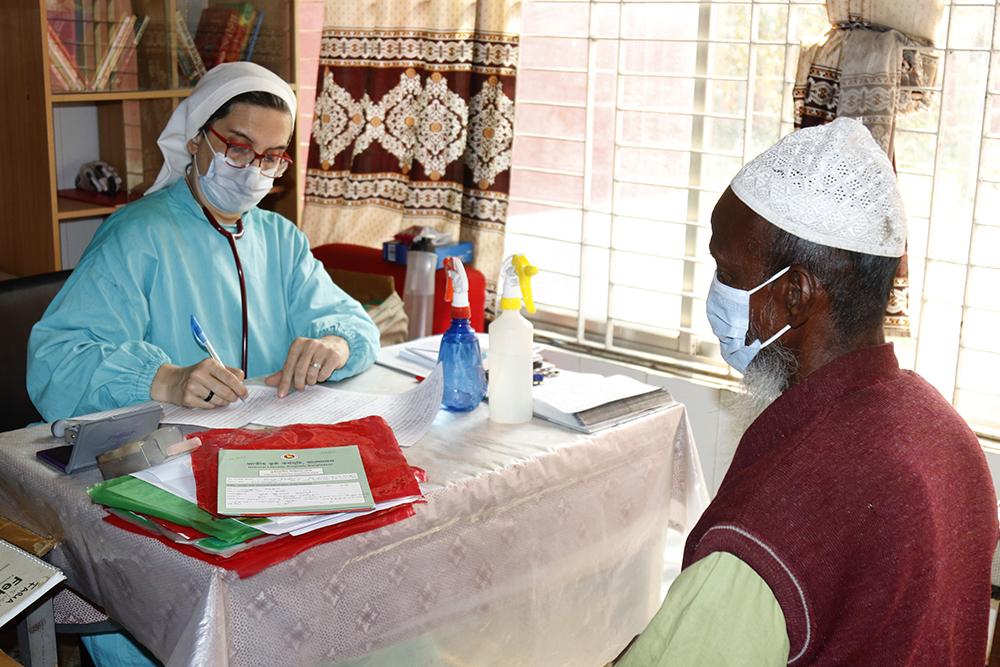
Sr. Roberta Pignone consults with a patient at Damien Hospital in Khulna, Bangladesh. (Uttom S. Rozario)
How are you preaching the word of God in your work?
I believe Jesus lives in my heart and I am doing his work. I never preach the word of Jesus by mouth. I must preach God's word by serving people and through love, as taught by Jesus. Just as Jesus stooped down and washed people's feet, I am spreading the message of Jesus by touching the sick, applying oil to their wounds, and giving medicine.
As a Catholic missionary, you have no problem serving as a doctor in Bangladesh?
I love people and they love me, so I don't have any problem being in a Muslim-majority country. But I feel bad for women because they cannot do many things even if they want to. They have to obey their husbands and their in-laws. Although educated, many times, they are not allowed to get a job.
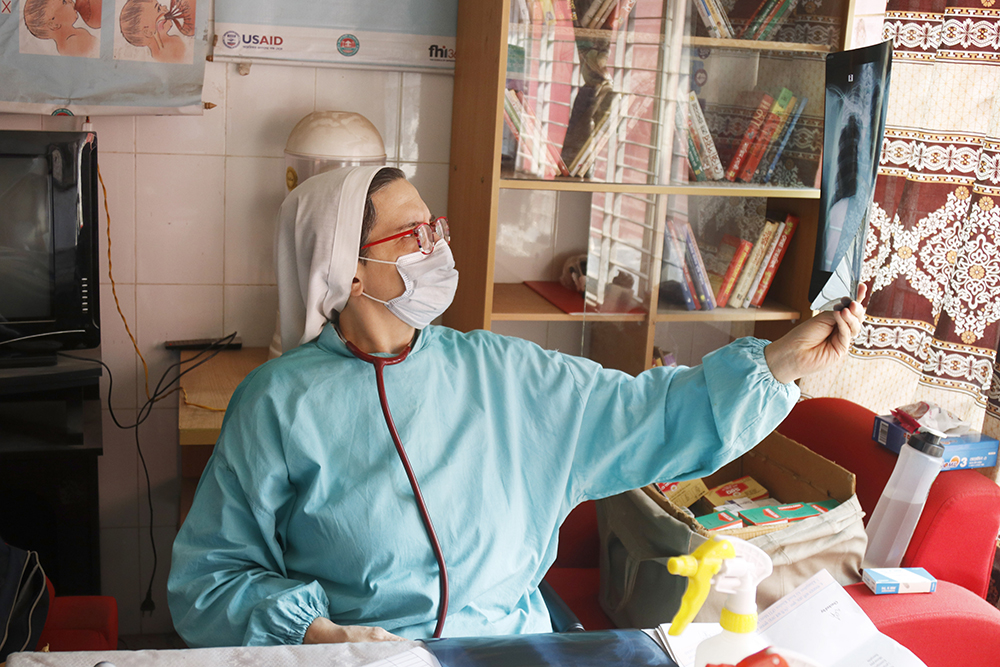
Sr. Roberta Pignone examines a patient's X-ray at Damien Hospital in Khulna, Bangladesh. (Uttom S. Rozario)
How is the overall condition of tuberculosis and leprosy in Bangladesh?
Many people think that Bangladesh does not have tuberculosis and leprosy, but I would say there are still a lot of them because we have a lot of patients here. I think we should not wait for patients; we should find patients. We do awareness campaigns on the streets, making people aware that they should get tested at the slightest symptom. We distribute leaflets on streets and in slums to get people tested, and we get patients.
What challenges do you face while doing this?
First of all, I am a doctor, so at the end of the year, I get tired of testing patients and making various decisions. Moreover, new diseases are coming, so if you only go to test for tuberculosis, other diseases are also found, but then I do not understand where to send this patient. Again, many doctors do not treat tuberculosis as it is a disease of the poor. I have to go through many challenges, but I'm able to overcome all obstacles because of God's help.
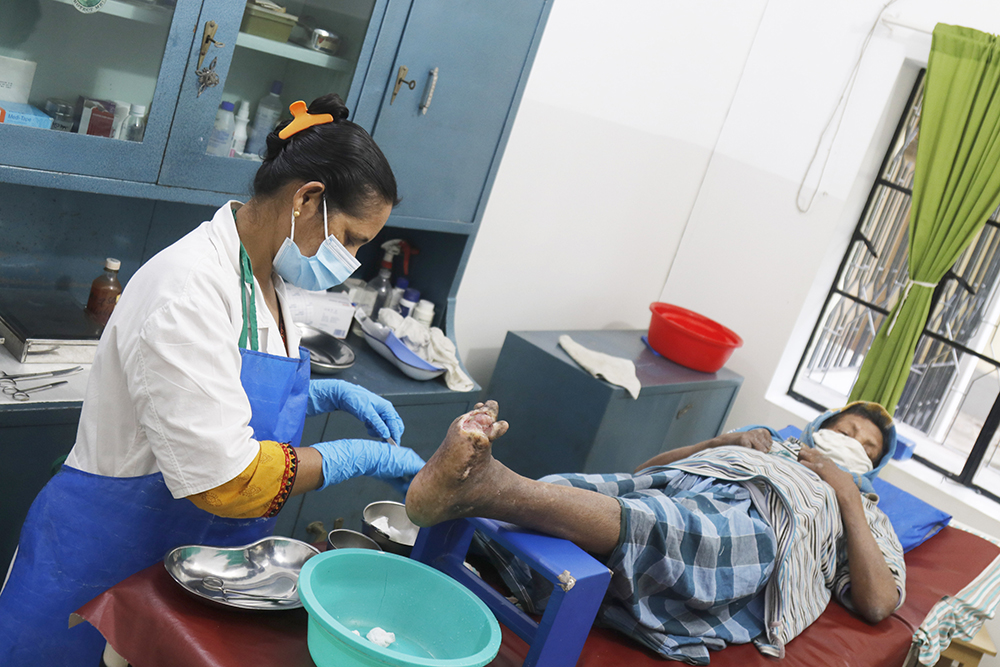
A nurse treats a patient at Damien Hospital's leprosy center in Khulna, Bangladesh. (Uttom S. Rozario)
How do you fund this hospital, and what is the current situation of the fund?
This hospital spends at least 6.5 million taka [$61,718] per year because here, no money is taken from the patient. This money is sent by my friends and relatives from different countries. Even today, I have not faced any funding problems by God's blessing, but I can't tell about the future. I have also raised money by publishing and selling calendars and books [in Italy] about our activities for the fund.
Is your wish to stay in this country?
I will do what the PIME wants. I will be here all my life if it is God's will. It depends more on God's will than on my own will.





